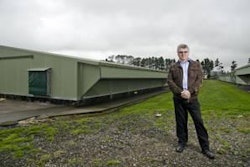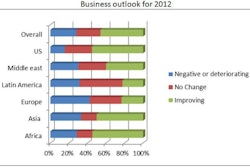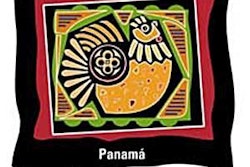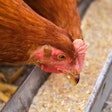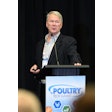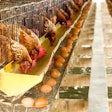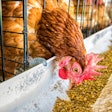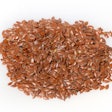In excess of 770 attendees made their way to Singapore for the World Nutrition Forum, hosted by Biomin. Held outside of Europe for the first time, Biomin brought delegates together to examine the theme of “Nutrieconomics – Balancing Global Nutrition and Productivity as People, Performance, Profit, Planet,” working together to improve food and nutrition for all, based on science, rather than public opinion.
The event opened with an address by Biomin founder Erich Erber, who explained how the world has moved from an age of affluence to an age of scarcity, and how now, and in the future, producers will have to make better use of resources available to them and will have to innovate.
Be it scarcity of inputs, diminishing areas of arable land, or a lack of cheap labor, various factors will impact producers’ ability to produce. Demand for food will continue to grow, as will food price inflation, and society will have to increasingly look to how food is produced. Yet, despite the doom mongers, human resourcefulness and creativity would suggest that there are ways to overcome the challenges the world faces.
Doris and John Naisbitt, of the Naisbitt China Institute, under the title of “new global models” examined how there has been a huge shift in established world views. The world will see the development of two poles of power – the US and China, but in addition to this, societies around the world will have to re-examine how they are run. They posed the question of whether people still trust their governments, and whether governments still trust their people, and what exactly the role of government should be.
Highlighting the growth of China, they noted that the country is the largest trial and error zone on the planet – keeping what works and dropping what does not. The way forward for the various economies of the world must be based on reality and not on wishful thinking, and education must be the number one priority for any nation that wants to be a success in the future.
Increasingly, emerging markets are trading with each other, which means that some established economies may well have to be classed as “submerging.”
The top challenges in nutrition were highlighted by Jürgen König of University of Vienna. Among these he listed protein and energy malnutrition, vitamin A and iron deficiency, and iodine deficiency. All of these depend on the availability and affordability of food of animal origin. Against this, however, he contrasted the advice to limit the intake of red meat and to avoid processed meats.
John Gilbert of FoodLife International examined risk assessment, management and communication. Risk assessment is evidence based, anyone should be able to understand it, he noted, yet it is still a relatively young science and is developing rapidly. While our abilities to assess risk may be getting better, it should always be remembered to guard against believing that any system is better than it actually is. We only have tools to work with, and we are dependent on available data.
And of course, as well as known risks, there are emerging risks, for example those coming about as a result of climate change. Climate change is thought to be resulting in higher levels of mycotoxins and plant metabolites. Environmental contamination, changes in production methods and in the processing of animal products, will all need to be taken into consideration when calculating risk.
Poultry and eggs
Turning particularly to poultry, Randolph D Mitchell of Perdue Farms, offered attendees a market update.The US remains the largest producer of broiler meat, while China and Brazil are neck and neck for second and third places, he said.
The market has not been plain sailing since the last crisis and many companies are not yet enjoying repeated quarter on quarter profitability. Overall production is expected to decline in the short term in Brazil, the EU and China.
In Brazil, many companies have cut back production or closed plants and while the country continues to be the world’s largest poultry exporter, exports have been depressed due to the high currency and loss of competitiveness.
Julian Madeley, director general of the International Egg Commission, noted that new technology will help us to tackle the challenges posed by rising input costs and increasing demand for food. Enriched cages can be viewed as one such technology, and one that is still evolving. The system will have an impact on various countries and not be restricted to the Member States of the EU. Costs for enriched cages, he said, are declining as the technology is better used, and we could reach the point where their use is cheaper than using conventional cages.
By 2050, 70 percent to 100 percent more food will be needed, yet currently there are numerous restraints on production. Technology must play a major role to make food production sustainable and satisfy demand. The quality of the environment must be preserved, and resources sustained while, at the same time, consumers must be offered choice, be that organically produced meat and eggs, free range, cage free or most affordable.
Watch a video from the forum on pig feed formulation: Optimizing pig feed formulation


